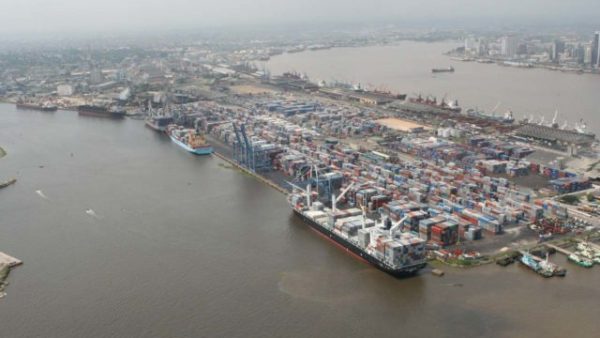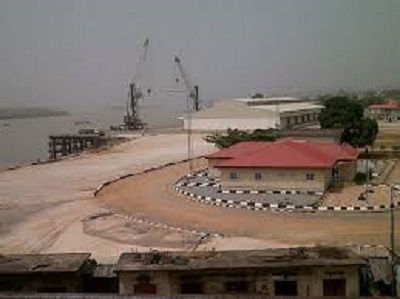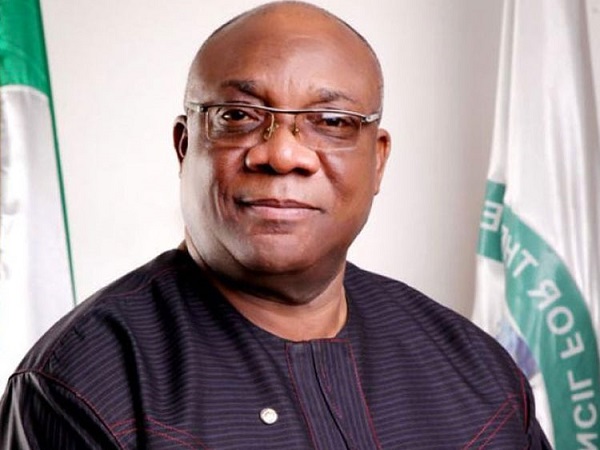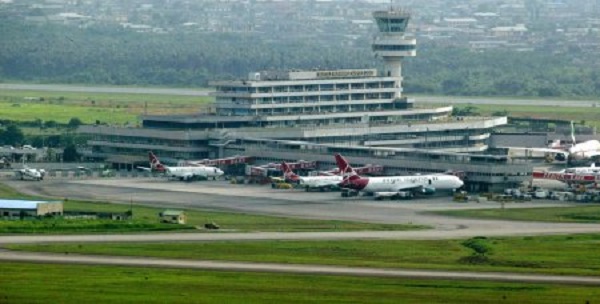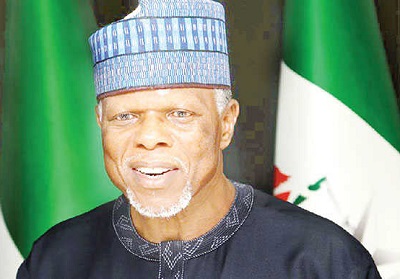National Fleet: How Vision 2020 Killed Maritime Sector
- Nigerian shipping to suffer until Govt prioritizes sector
- ‘14% Customs Duty’ Major Impediment To National Carrier
By Kenneth Jukpor
Appalled by the gross negligence of the nation’s shipping sector in the economic plans of the federal government, maritime experts have accused the government of paying lip -service to the development of an industry capable of augmenting the fiscal fortunes of the country.
Citing the absence of maritime sector from the Vision 2020 agenda of the Nigerian government, the industry veterans who spoke at the 20th Anniversary Lecture/ Awards organized by the League of Maritime Editors and Publishers (LOMEP), expressed skepticism on the government’s perception on the relevance of shipping.
They also frowned at the neglect of the shipping sector from the basket of incentive offered by the Central Bank of Nigeria (CBN), Ministry of Finance, and Federal Inland Revenue Service (FIRS) published in the Compendium of Investment Incentives in Nigeria 2018 published by the Nigerian Investment Promotion Commission (NIPC).
The Executive Secretary of the Nigerian Shippers’ Council (NSC) Mr. Hassan Bello in his paper presentation at the event stated that Nigeria’s maritime sector generated a total sum of $9,087,585,117.5 paid as freight for dry and wet cargo to foreign ship owners in 2015, due to absence of Nigerian owned fleet plying international trade.
Bello who was speaking on the theme; “Indigenous Fleet Development, What Options?”said; “It is not surprising that while efforts have been made by agencies of government (MDAs, CBN etc) to stimulate growth, provide incentives in the named thematic areas, as a follow through to the action plan under the Vision 2020, not much has been done for the maritime industry”
According to him, Nigeria’s Vision 2020 issued in 2010 failed the maritime industry in different levels. Vision 2020 identified five thematic areas as key sectors for economic development, namely: Agriculture and Food Security; Energy; Finance; Manufacturing; and Solid Minerals
The document sets clear goals and road maps for land and air transport but none for marine transport. Little wonder that the development strategies by MDAs also omitted the shipping sector, as it has not been identified as a key sector for economic development.
National Technical Working Groups were established for each of these thematic areas with the task of developing short- and medium-term strategies for the development of these sectors. The Vision 2020 policy document display what is generally referred to as “sea blindness”
“Vision 2020 was oblivious to the reality that energy, manufacturing, agriculture, solid minerals, all depend on transportation services and in particular shipping services given its status as the preferred mode for international transportation for imports and exports” he said.
Meanwhile, the former Chairman of the International Maritime Organization’s (IMO) Legal Committee in London and former Chief Executive Officer of the Ghana Shippers’ Authority, Dr. Kofi Mbiah corroborated Bello’s idea, stating that the Nigerian government must appreciate the role of shipping and develop a strategic maritime policy to enable the sector thrive.
Dr. Mbiah who was speaking to MMS Plus on the sidelines at the event said; “There must be an appreciation of the industry and its role in developing the nation’s economy. Where do we place the importance of the oceans in the economic development? Does Nigeria give it priority? Is the nation willing to channel its resources into that area? This links us to the question of policies. If you have a policy that appreciates the role of the seas via a cluster approach, the industry would definitely grow”
He stated that a comprehensive national maritime policy was needed to take a holistic look at the issues of seafaring for creation of jobs, boat building, ship repair yards, recreation, fishery and other factors.
“It is that policy that would create the enabling environment that would support the establishment and sustainability a national fleet. Fleet development is a matter of policy. A nation has to find out if it has the comparative advantage to support the ownership of vessels. It isn’t just about the sentiment of owning a vessel. It is about business and profit” he added.
Although Dr. Mbiah expressed optimism that Nigeria has the right ingredients for a national fleet to thrive, he admonished the government to create the enabling environment to ensure that shipping lines and shipping business thrives.
“The government can give tax waivers and preferential rights. All these can be done by the government but it must do it for a private entity in which the government could decide to have a small stake of 10% because the training of the people and management is important just as getting the right caliber of people without unnecessary political interference is also critical. If a nation doesn’t have all of these components, the nation would be exercising protectionism for an inefficient company. If you do that, within a short time because you can’t gain sustainability, the company would collapse” he said.
According to him, such shipping line should be operated as a business entity and not as a political entity where government dictates what the line should do and what the line should carry.
“Nigeria imports a lot of products into the country with over 60 million tonnes of cargo coming into the country every year and the nation is also exporting over 2billion barrels of crude oil daily. Therefore, the market is there for Nigeria already; how efficiently this business and the opportunities can be handled is what is important” he added.
While the Nigeria Customs Service (NCS) set new record for revenue generated in a single year with the sum of N1.2trillion as revenue for the 2018 fiscal period, Bello highlighted customs duty as one of the major impediments to the establishment of a national carrier in the country.
According to Bello, Customs duties for vessel importation are considered by the shipping business community as prohibitive.
“The Customs duty in Nigeria is to the tune of 14% of the total cost of a vessel. As a result of this, vessel owners, even when they are Nigerians prefer foreign registry and bring in their vessels under Temporary Importation Permit which only demands 1% of the total cost and is renewable every year” he said.
Meanwhile, the Chairperson, Nigerian Ship-owners Forum, Barr. (Mrs.) Margaret Orakwusi expressed worry that despite the ‘first class’ paper presentation by Mr. Hassan Bello in twenty years time the industry may remain at the same level because the government as well as investors don’t fully understand the maritime sector.
“We all know that Nigeria must transport cargoes on international trade as the nation relies heavily on importation while crude oil which is the chief forex earner is also exported. Why should we generate and import so much cargo, yet the coastal service that adds value in terms of revenue isn’t recognized?”
Orakwusi called for an exclusive Ministry of Maritime that would aptly capture the significance and contribution of maritime to the nation’s economy.
“When the National Bureau of Statistics (NBS) releases quarterly figures on the nation’s Gross Domestic Product (GDP), I don’t believe the report because most of the activities in the maritime sector is passed on to other sectors. That is why the sector is poorly rated” she added.
Meanwhile, the League of Maritime Editors and Publishers called on the federal government to set aside 10 percent of the Cabotage Vessel Finance Fund (CVFF) for capacity building in the nation’s maritime media industry.
The President of LOMEP, Mr. Kingsley Anaroke in his welcome address on the occasion of seminar said this has become necessary as the maritime media; mainly publishers share the fate being suffered by the Nigerian indigenous ship owners.
According to him, while the ship owners were currently suffering as a result of lack of funds to acquire fleet, the maritime media publishers have been faced with capacity development issues, including the resources needed for investigative and developmental journalism, adding that the situation is worsened by lack of patronage by the agencies of government in the sector.
Anaroke stressed that this is even worrisome since maritime media is inundated with series of press releases being churned out by the agencies and which are published.
“The point being made here is that maritime media publishers are critical stakeholders in the sector and should be treated as such. With about 65 Magazines, newspapers and online independent publishers in the sector, they have a combined workforce of over 255 members of staff with almost zero advert patronage on the average monthly from the maritime agencies and operators yet they have been adjudged as the most active in Africa.
“At this juncture, the League on behalf of the entire maritime media publishers, is calling on all the maritime and port regulatory agencies and private sector operators to avail us the needed support while we call on the federal government to enhance maritime journalism with 10 percent of the CVFF. This can be expressed within the framework of capacity building and local content legislations” he said.
The swearing-in ceremony of the new executive members of the Association was also done at the event; while the Nigerian Ports Authority (NPA), Nigerian Shippers Council (NSC) , SIFAX Group and Comet Shipping received corporate awards from the League for their contributions in the industry.
NPA also received a Corporate Award for Transparency and Infrastructural Development in Nigerian ports, even as NSC was honoured for its Port Economic Regulatory efforts in Nigeria.
SIFAX Group received award for Outstanding Indigenous Terminal Operator in Nigeria, while Comet Shipping was honoured for excellent shipping services.
The founder of the National Association of Government Approved Freight Forwarders (NAGAFF), Dr. Boniface Aniebonam received an award for Promotion of Capacity Building in Freight Forwarding Industry in Nigeria and the former President of Association of Nigerian Licensed Customs Agent (ANLCA), Prince Olayiwola Shittu was also honoured for Innovation in Customs Brokerage in Nigeria.

